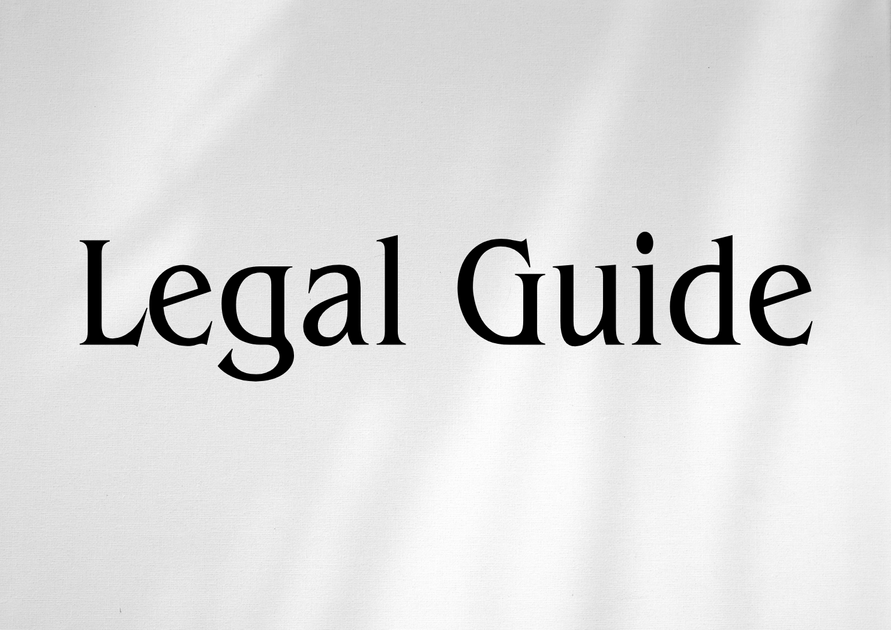Introduction
In today’s dynamic financial landscape, personal lending remains a cornerstone of individual and family financial planning across the United Arab Emirates (UAE). However, with the proliferation of personal loan facilities, there has also been a corresponding rise in cases of loan default. For businesses, executives, HR professionals, and legal practitioners operating in the UAE, understanding the legal remedies available in the event of a personal loan default is both a matter of compliance and prudent risk management. Recent legislative updates—especially those following the promulgation of Federal Decree-Law No. (14) of 2020 on the amendment of the Commercial Transactions Law and subsequent regulations—have materially altered both creditor and debtor rights. This article provides an authoritative, comprehensive analysis of the current state of UAE law regarding personal loan defaults, offering pragmatic insights, clear legislative references, and concrete recommendations for stakeholders navigating this challenging terrain.
Table of Contents
- Legal Framework for Personal Loans in the UAE
- Key Legal Provisions and Federal Decrees Governing Loan Defaults
- Consequences of Default on Personal Loans
- Legal Remedies and Enforcement Procedures
- Comparing Old and New Legal Approaches
- Practical Case Analyses and Hypotheticals
- Risks of Non-Compliance and Best Practice Strategies
- Future Outlook and Legal Recommendations
Legal Framework for Personal Loans in the UAE
Statutory Landscape
Personal lending in the UAE is regulated primarily under:
- Federal Law No. 5 of 1985 (UAE Civil Transactions Law): Lays foundation for contractual obligations and payment defaults.
- Federal Decree-Law No. (14) of 2020: Applies amendments to the Commercial Transactions Law, including significant changes to bounced cheque liability and enforcement mechanisms.
- Central Bank Circulars and Guidelines: Provide operational framework for licensed banks and finance companies.
These laws, along with Ministerial Decisions and Cabinet Resolutions, collectively form the backbone of personal lending compliance in the UAE. Lenders and borrowers alike must adhere strictly to these legal parameters to avoid severe civil and criminal consequences.
Key Definitions
A personal loan is defined under UAE Central Bank guidelines as any sum advanced by a licenced financial institution to an individual (or entity) for personal, non-commercial use. Defaults typically occur due to:
- Non-payment of instalments
- Ineffective settlement of interest
- Bounced security cheques
Understanding these triggers is crucial for proactive risk management and compliance planning.
Key Legal Provisions and Federal Decrees Governing Loan Defaults
Notable Laws and Updates (UAE Law 2025 Updates)
Over recent years, the UAE legislature has streamlined enforcement processes and modified criminal liabilities. Notable provisions relevant to personal loan defaults include:
- Article 401, UAE Penal Code (as amended by Federal Decree-Law No. (14) of 2020): Decriminalises certain types of bounced cheques, transitioning to administrative penalties except when fraudulent intent is proven.
- Federal Law No. (18) of 1993 on Commercial Transactions (as amended): Introduces faster judicial procedures for cheque and debt recovery.
- Ministry of Justice Circulars (2022/2023): Outline updated civil case filing systems and enforcement office procedures for creditor claims.
Official References
| Law/Decree | Scope | Year |
|---|---|---|
| Federal Decree-Law No. (14) of 2020 | Bounced Cheque Reforms, Enforcement Provisions | 2020 |
| Federal Law No. 18 of 1993 (amended) | Commercial Transactions, Summary Procedures | 1993/2020 |
| Ministry of Justice Circular (Enforcement) | Civil Case Management, Enforcement Office | 2022/2023 |
This regulatory overhaul requires both creditors and debtors to realign their protocols, policies, and agreements to remain compliant and to minimise exposure to legal risk.
Consequences of Default on Personal Loans
Civil Consequences
Upon default, the lender gains the statutory right to:
- Initiate a civil claim in UAE courts for the outstanding amount, accrued interest, and costs.
- Seek provisional attachments on debtor assets, subject to judicial approval.
- Enforce bounced cheques as executive instruments under amended Article 635 bis of the Commercial Transactions Law.
Administrative & Credit Consequences
- Credit blacklisting by Al Etihad Credit Bureau
- Potential asset freezes under Central Bank procedures
- Restriction on access to new or further credit
Criminal Consequences (Post-Amendment)
The reforms decriminalised many cases of bounced cheques; however, criminal liability may still arise when fraudulent intent (such as cheque forgery or deliberate deception) is established. In such rare scenarios, criminal prosecution can still be pursued.
Legal Remedies and Enforcement Procedures
Civil Litigation and Debt Enforcement
Modern UAE law enables creditors to bypass protracted criminal processes and proceed directly to civil enforcement. Primary remedies include:
- Summary Procedures: Creditors may apply for summary orders in the event of default, considerably expediting the recovery process compared to regular litigation (Cabinet Decision No. 57 of 2018 regarding Executive Regulations of Civil Procedure Law).
- Debt Enforcement through Enforcement Offices: Specialized units within courts oversee execution, including salary attachment up to legally permitted limits and direct account seizure.
Bounced Cheque Reforms
The status of security cheques—a common lending collateral—has undergone major change. While bounced cheques are no longer automatically felonious, they are considered executive writs, facilitating direct enforcement by the courts without lengthy court procedures (See Article 635 bis, Commercial Transactions Law).
Judicial Asset Attachment
Once a final judgment is issued, assets of the debtor (including bank accounts, vehicles, and real estate) can be attached and, if needed, auctioned to satisfy the debt. Notably, certain assets—such as a portion of salary—enjoy exemptions as defined under the UAE Civil Procedures Law.
Practical Steps in an Enforcement Case
- Lender files a claim in relevant court, substantiating default based on loan contract and evidence (including bounced cheques).
- Court issues provisional orders and schedules the matter for review.
- Upon final judgment, the execution office enforces asset seizure, salary attachment, or other orders as permitted under UAE law.
Suggested Visual
Consider adding a flow diagram outlining steps in the enforcement of personal loan defaults, from civil case filing to final enforcement.
Comparing Old and New Legal Approaches
| Aspect | Prior to Federal Decree-Law No. (14) of 2020 | Post-Amendment |
|---|---|---|
| Bounced Cheques | Criminal liability automatically imposed | Primarily administrative and civil remedies; criminal charges only for fraud |
| Court Proceedings | Slower, longer litigation cycles | Summary procedures and expedited enforcement |
| Enforcement Tools | Criminal enforcement, prison sentences | Direct enforcement through judgment writ, asset attachment |
| Debtor Protection | Limited exemptions | Greater procedural safeguards for debtors |
Practical Case Analyses and Hypotheticals
Case Study 1: Individual Defaulting on Loan Repayments (2024)
Facts: Mr. A, a UAE resident, takes a personal loan from a bank with post-dated security cheques. Due to unforeseen financial hardship, his repayments lapse over three months, and multiple cheques bounce.
Analysis: The bank approaches the execution court, submitting the bounced cheques as executive writs. The court, under reformed procedures, issues an order for attachment of Mr. A’s bank accounts and initiates proceedings to recover the defaulted amount. Mr. A is protected from automatic criminal prosecution unless evidence arises of cheque forgery or wilful fraud.
Case Study 2: Employer as Loan Guarantor
Facts: A UAE-based company acts as a guarantor for an employee’s personal loan. The employee absconds, leaving substantial debt.
Analysis: The lender may initiate civil proceedings directly against the company (guarantor) using expedited procedures, leading to swift enforcement actions (such as asset or receivable attachment) if the court rules in the lender’s favour.
Hypothetical Scenario: Digital Lending and Loan Defaults
With the rise of fintech platforms, courts have begun accepting digital contracts as evidence. In the event of default, the same civil enforcement processes apply, underpinned by recognised e-signature and electronic document regulations (Cabinet Resolution No. 3 of 2007).
Suggested Visual
Consider a table showing stakeholder obligations and timelines for key steps in the recovery process, contrasting traditional versus digital loan structures.
Risks of Non-Compliance and Best Practice Strategies
For Creditors (Banks, Employers, Lenders)
- Risk of unenforceable loans if documentation is deficient or fails to comply with current legal standards.
- Compliance exposure due to reliance on outdated cheque-based enforcement tactics.
For Debtors
- Severe credit consequences through blacklisting and asset attachment.
- Limited recourse if legal deadlines for objection/negotiation are missed.
Compliance Checklist
| Step | Key Action |
|---|---|
| 1 | Prepare clear, compliant loan agreements referencing updated regulations |
| 2 | Use digital as well as physical documentation |
| 3 | Deploy robust KYC (Know Your Customer) procedures |
| 4 | Monitor repayment schedules and flag early delinquencies |
| 5 | Initiate prompt, documented recovery actions through execution offices |
Application for Organizations
HR and finance departments must stay current with legal reforms, update lending protocols, and offer ongoing training to managerial and compliance staff. Legal counsel should be retained for structured contractual drafting and for protocol reviews following each regulatory update.
Future Outlook and Legal Recommendations
Implications for Businesses and Individuals
The UAE’s legal framework is moving toward a more balanced, efficient, and debtor-protective regime—without undermining creditor rights. The gradual digitisation and centralisation of enforcement offices promise even faster and more transparent dispute resolution.
Best Practice Recommendations
- Conduct regular legal audits of all loan and credit documentation
- Implement automated compliance and alert systems
- Engage qualified legal consultants to interpret new regulations
- Encourage pre-default negotiation and mediation to minimise litigation costs
- Leverage the summary procedures for efficient claim recovery
Forward-Looking Perspective
Looking ahead, we can expect further refinement of UAE credit and enforcement laws, including advances in digital evidence protocols and possibly greater harmonisation with regional legal systems. Stakeholders should remain proactive, leveraging legal expertise to mitigate risks and to capitalise on the increased accessibility and speed offered by recent judicial reforms.
Conclusion
Default on personal loans is an increasingly important topic in the UAE—affecting individuals, businesses, and the broader banking sector. With the enactment of recent federal decrees and procedural reforms, creditors now possess powerful enforcement mechanisms, while debtors enjoy greater procedural and asset protections. Ensuring compliance with current regulations is critical—not only to avoid penalties, but also to maintain trust and financial reputation. Stakeholders should invest in robust legal strategies, stay informed of legislative trends, and consider professional guidance to navigate evolving risks with confidence. By adopting these best practices, clients not only protect their interests, but also contribute to a fairer and more robust UAE financial ecosystem, positioning themselves advantageously for future developments in the nation’s legal and business environment.



